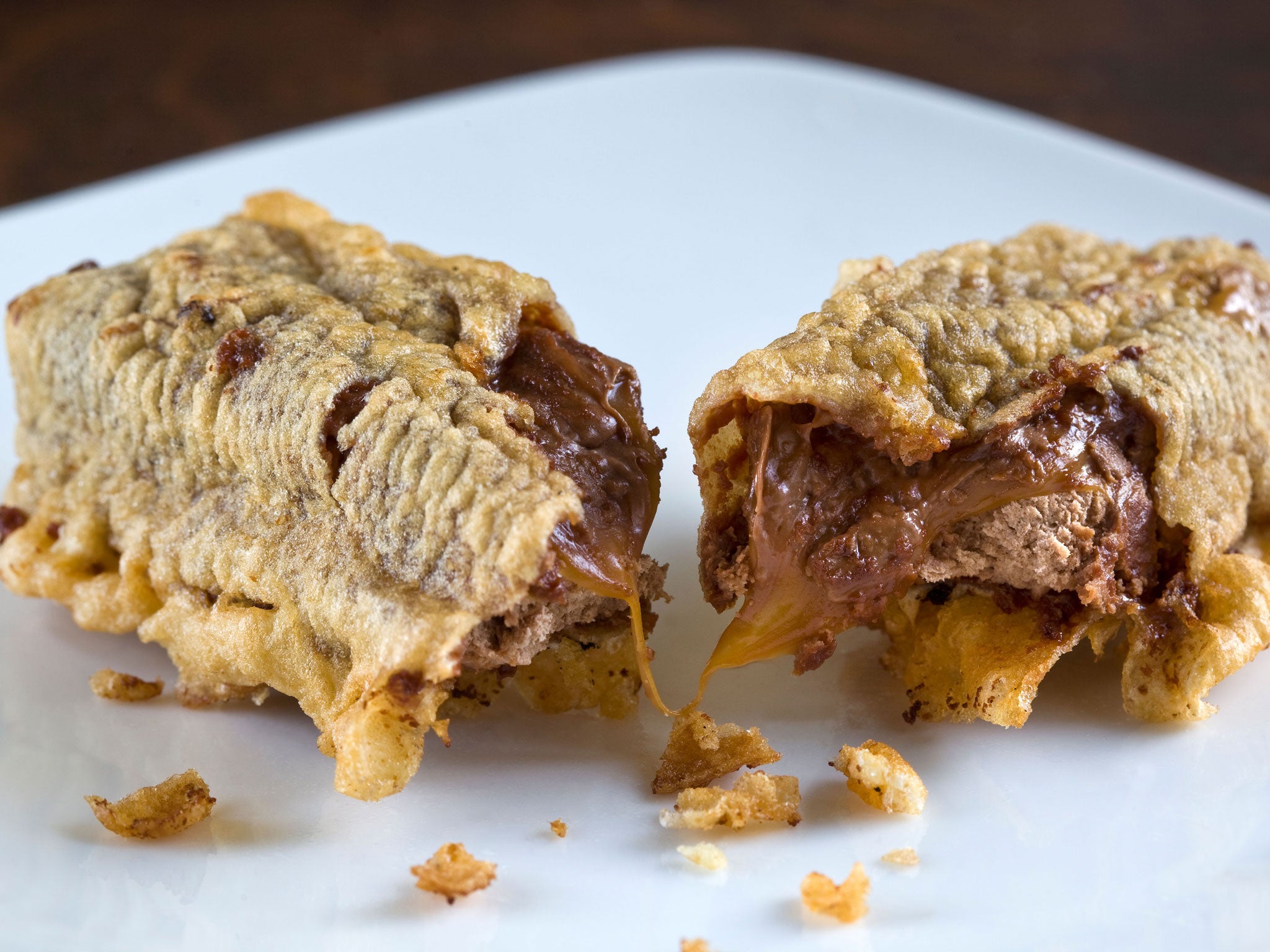The deep-fried Mars bar vs porridge: Two Scottish favourites go head to head
It may seem a no-brainer, but scientists are to test the effects of the fabled snack on blood vessels

Your support helps us to tell the story
From reproductive rights to climate change to Big Tech, The Independent is on the ground when the story is developing. Whether it's investigating the financials of Elon Musk's pro-Trump PAC or producing our latest documentary, 'The A Word', which shines a light on the American women fighting for reproductive rights, we know how important it is to parse out the facts from the messaging.
At such a critical moment in US history, we need reporters on the ground. Your donation allows us to keep sending journalists to speak to both sides of the story.
The Independent is trusted by Americans across the entire political spectrum. And unlike many other quality news outlets, we choose not to lock Americans out of our reporting and analysis with paywalls. We believe quality journalism should be available to everyone, paid for by those who can afford it.
Your support makes all the difference.The health effects of that fabled Scottish snack, the deep-fried Mars bar, are to be tested in a clinical trial which will form the first scientific study into the impact that the snack, reputedly most popular in Glasgow, has on the human body.
Researchers at Glasgow's Western Infirmary hospital will compare the effects with those that occur after eating a more conservative, and healthier, Scottish dish – a bowl of porridge.
"The deep-fried chocolate bar... has been cited as a symbol of all that is wrong with the high-fat, high-sugar Scottish diet," says Professor Matthew Walters, the lead consultant for stroke in West Glasgow, who is director of the Scottish Stroke Research Network. "Despite the snack's reputation, no medical research has been performed to examine the effects of consuming a deep-fried chocolate bar on the human body, and that is what we are going to do," he explained.
"In this student project we will look at what happens to blood vessels in the brain and compare the effects of fried chocolate with another traditional Scottish delicacy, porridge."
Porridge has been shown to reduce the risk of cardiovascular disease, but its effect on brain blood flow has yet to be investigated. In the study, 24 healthy volunteers aged under 40 will eat either a regular deep-fried Mars or a bowl of porridge, several days apart, and ultrasound scans will assess the impact on blood vessels, including the largest artery in the brain.
Regular, moderate consumption of chocolate has been associated with reduced stroke risk, and the same team has demonstrated a change in brain blood vessels after eating a 100g bar of chocolate. Antioxidants present in the chocolate may be responsible for this.
William Dunn, the student who will perform the scans, said: "We hope that the results will shed more light on the links between diet and stroke, and allow health-conscious Glaswegians to make a more informed choice in the chip shop."
Folklore has it that the deep-fried Mars was first eaten in 1995 in Aberdeen. By 2004, a survey of 627 fish-and-chip shops in Scotland, published in The Lancet, showed that 22 per cent sold deep-fried Mars bars. Average weekly sales were 23 bars, but 10 shops reported selling up to 200, with a typical price of 60p. Other foods that the fish-and-chip shops had been asked to fry include Snickers bars, bananas, and Creme Eggs.
Three shops each said they had been asked for deep-fried ice cream and deep-fried Maltesers.
"Encouragingly," said the researchers, "we did also find some evidence of the penetrance of the Mediterranean diet into Scotland, albeit in the form of deep-fried pizza."
Join our commenting forum
Join thought-provoking conversations, follow other Independent readers and see their replies
Comments